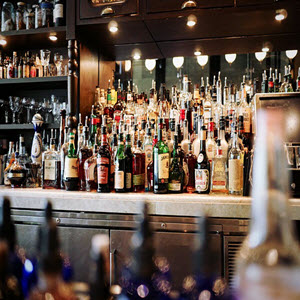Posted in Automobile, Blog, Israel F. Piedra, News & Articles, Personal Injury

The CDC estimates that 29 people in the United States die every day in a motor vehicle crash involving an alcohol-impaired driver. Sometimes the deceased party is an intoxicated driver himself. Sometimes the victim is an innocent passenger or unlucky driver. Always, it is a tragedy for the victim’s family.
A drunk driver is, of course, legally responsible for any injuries he or she causes. Driving while intoxicated is negligence per se. Sometimes, however, an injured party can’t be made whole by the drunk driver and his/her resources. For example, if someone is paralyzed or killed by a drunk driver, it’s unlikely that a driver’s insurance will suffice to cover the victim’s damages. Even with a lesser injury, many drivers do not carry sufficient (or any) insurance coverage.
When the responsible driver has insufficient insurance coverage, the victim’s first recourse is their own underinsured motorist coverage. Hopefully, the victim has coverage limits of at least $250,000, or even better, an umbrella policy.
However, sometimes the victim does not have adequate insurance coverage, and neither does the perpetrator. Sometimes, that means going after a defendant’s personal assets. Often, it simply means that the plaintiff unfortunately cannot be made whole. In certain situations, however, a third party has also contributed to the perpetrator’s drunkenness, and that third party can become an additional defendant.
What is “Dram Shop” Liability in New Hampshire?
In certain situations, a bar or other alcohol-selling establishment can be liable for overserving the drunk driver. This is called “dram shop liability.” Most jurisdictions within the United States allow for dram shop liability. For example, in New Hampshire RSA 507-F states that a bar (or other establishment) that negligently serves alcoholic beverages to a minor or an intoxicated person is liable for any resulting damages to a third person. The critical question is: what constitutes negligent service by a bar? The statute provides that service is negligent if the bar “knows or if a reasonably prudent person . . . would know that the person being served is a minor or is intoxicated.” RSA 507-F:4. If the bar serves a minor without IDing that person, that is evidence of the bar’s negligence.
Thus, an injured party may be able to sue a bar or other alcohol-selling establishment if she proves that the establishment negligently served the eventual drunk driver.
In fact, the New Hampshire statute even allows an intoxicated person to sue a bar if the intoxicated person is injured himself. However, the standard for such an action is (justifiably) much higher than mere negligence. The intoxicated plaintiff would need to prove that the establishment knew (or should have known) that serving the customer alcohol “creates an unreasonable risk of physical harm to the drinker . . . that is substantially greater than that which is necessary to make his conduct negligent.” RSA 507-F:5. For example, egging on a customer to drink more and more while obviously drunk might be considered reckless service under this provision of the statute.
Social Host Liability in Nashua and Manchester
What if the drunk driver is overserved at someone’s home, not a commercial institution? The New Hampshire Supreme Court addressed that question in the case of Hickingbotham v. Burke, 140 N.H. 28 (1995). The Court recognized that unlike commercial establishments, hosts of parties and other events had no monetary motivation in their service of alcohol.
The Court also recognized that in many states, social hosts cannot be held liable for overserving alcohol. However, the Court decided to choose a compromise path. It held that social hosts could be liable to their guests if their actions were “reckless”; that is, a “conscious disregard of a substantial and unjustifiable risk of a high degree of danger.” This is a very high standard. As a note, the social host’s homeowner’s insurance coverage would typically provide coverage against such a claim.
In Hickingbotham, the plaintiff (injured party) was the social guest himself, and the Court allowed for the possibility of liability but acknowledged the extremely high bar. In most of those situations, the injured party would have voluntarily imbibed alcohol to the point of intoxication. Thus, they would have a high percentage of contributory negligence and it would be difficult to prevail in a legal claim.
At least some Superior Court judges have gone on to extend the holding in Hickingbotham. As mentioned above, the injured party in that case was a social guest himself. Subsequent Superior Court cases have involved innocent third parties who were injured by social guests. In Estate of Thompson v. McClure, the Superior Court concluded that a negligence (rather than a recklessness) standard should apply when a third party is injured by a drunk social guest. So, instead of having to prove the high standard of reckless overservice, the injured party only has to prove that the social host was negligent.
Conclusion
In sum, depending on the case-specific circumstances, it may be possible to advance a claim against a bar, restaurant, or even a homeowner for overserving a drunk driver. These cases are difficult, even when the injured party is an innocent third person. When the injured party is the alcohol-impaired person himself, recovery is very difficult, and in many cases impossible. Consult with an experienced attorney for an assessment of your case.
If you’ve sustained a personal injury due to a car accident or other incident related to drunk-driving, you should consult with an experienced personal injury lawyer. Contact Welts, White & Fontaine, PC by calling (603) 883-0797 or writing to us here. We’re Nashua’s largest law firm and have decades of experience with personal injury and car accident cases.
Author: Israel F. Piedra
This blog is intended for informational use only. The information contained herein should not be construed as offering legal advice or a legal opinion.
